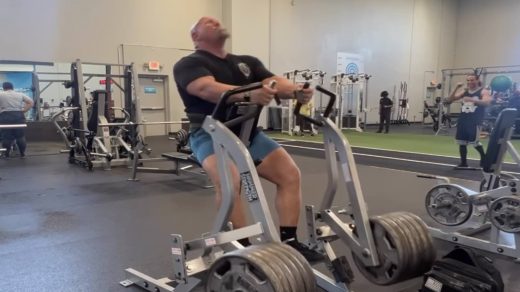May can be a busy time for families who have graduates. When I was in Madison last week, I saw plenty of people who were taking pictures at the state capitol wearing caps and gowns. It was fun to see their excited smiles and to wonder where they are heading next on life’s adventures.
This weekend, I attended a graduation at my state’s flagship engineering and technology school, and it didn’t disappoint. It was inspiring to see so many people going into careers in science, technology, engineering, and math fields. It was particularly gratifying to see the number of women graduating in fields that have been historically male dominated, including geophysics, mining, metallurgy, and explosives engineering.
Due to the size of the ceremony, graduates of various departments were recognized in groups by their majors before coming to the stage individually to receive their diplomas. Although mechanical engineering was dominant at the ceremony I attended, there were quite a few aerospace engineers and a surprising number of metallurgical engineers who had the most stylish hair, shoes, and eyeglasses in the crowd. In addition to computer science and computer engineering, degrees from a new program in information systems and technology were also conferred.
The “best decorated graduation cap” honors goes to the biology major who had three Petri dishes affixed to her cap, along with the metallurgical engineer who had gilded designs on the top of hers. Several of the biology majors had plush bacteria toys dangling with their tassels after being gifted them from their department chair. During the departmental recognitions, the audience figured out that there was a lone economics major among the hundreds of graduates, and he received some extra applause and cheering.
I sat next to the mother of one of the information systems graduates and was learning a bit about the new program and how it was founded as part of a major donation to the university. That funding led to the addition of a college that covers entrepreneurship, information systems, technology management, and more. Although some of those disciplines existed previously as part of the college of engineering, it’s interesting to see them grouped together under a new umbrella.
My assumption is that the new organizational structure also helps ensure that they’re funded in the way that the donor intended, rather than the money being washed through a larger department and potentially sidetracked. Since the new college carries the donor’s name, it also needed to contain actual departments, so I’m sure that was a factor as well. According to his mother, that new graduate interviewed at a healthcare software company, but she wasn’t sure which one it was.
Being well into my career, it’s sometimes easy to forget what those milestones that our younger selves experienced meant to us at the time. I don’t have deep memories of my college graduation other than lining up in the bowels of the basketball arena with other graduates in my department and singing our school song for what would be my last time. (I admit, I haven’t visited since graduation, but I’ll be doing that later this month as part of a milestone road trip with my former college roommate.) I remember my medical school graduation in great detail, especially the processional that involved bagpipers and a parade down a couple of escalators. With the bagpipes and the gowns and hoods and having been through the wringer during the four years prior, it seemed quite surreal at the time.
I also remember the fact that the main speaker failed to follow the program, which led to us not being administered the appropriate oath (in our case, the Oath of Geneva rather than the Hippocratic Oath) during the ceremony. They tried to rectify that after the ceremony concluded, but many of us had already scattered to meet with families and loved ones.
I’ve made use of that fact at least once in my career, when a patient was upset that I wouldn’t give her what she wanted and told me that I had to do it because “you took an oath.” I said very calmly that actually I didn’t take that particular oath, but that wasn’t going to keep me from giving her high-quality, evidence-based care regardless of the fact that it wasn’t what she wanted on that particular day. I think most of us in medicine would agree that the core values we follow are ingrained in us long before any oaths become topics of discussion, and that we don’t need to say prescribed words to do the right thing. Quite a few medical schools allow their incoming classes to write their own oaths during the first year, enabling them to memorialize values and intentions that are important to them.
There are situations where oaths are important, and I was able to experience one of those as well while attending my first ROTC officer commissioning ceremony as part of the graduation festivities. During that ceremony, a military officer administers the Oath of Office to each newly appointed Second Lieutenant, and then family members or loved ones help pin on their ranks. They also receive their first salute from an enlisted service member who has been important to them. It was interesting to see who the cadets chose to perform the different parts of the ceremony. Some of them had relatives who were officers administer the oath, one had a former scout leader who was a naval officer do his, and one woman received the oath from her husband who graduated and was commissioned last year. The most touching was the cadet who had his grandfather, a Korean War veteran, give his grandson the first salute. There were few dry eyes in the house after that one.
It was inspiring to see these young people, most of whom could have headed off to solid careers in engineering or technical fields, commit to serving their country. Instead of following the money, they’ll be supporting our military as cybersecurity resources, civil engineers, logistics coordinators, pilots, and missile operations officers.
The latter job role is one that most people don’t think about. It feels strange to understand that in a world where so many people are focused on what they see on TikTok or Instagram, we have officers underground 24×7 ready to launch what might be world-ending missiles should the order arrive. Knowing that gives me a new perspective on my daily work struggles or the things that some of us think are emergencies on any given day. There’s a lot of uncertainty in the world that these newly minted officers are headed into, but I have high hopes that this generation has leaders among it that can do a better job than what we might be seeing today.
Are you headed to any graduations this spring, and what are your hopes for the futures of these recently degreed individuals? Are graduates gravitating to technical fields or finding their futures in the arts or humanities? Leave a comment or email me.

Email Dr. Jayne.







